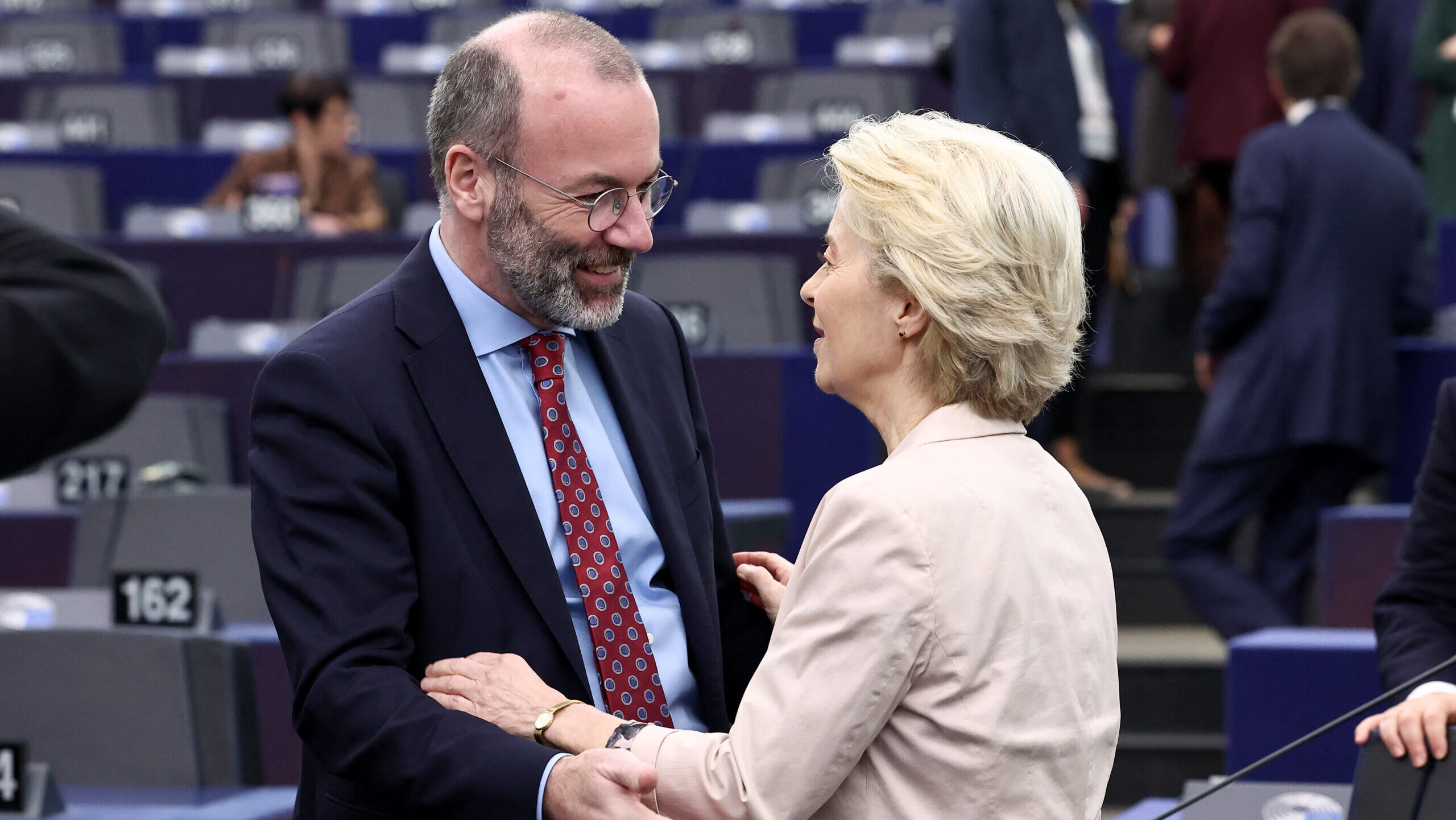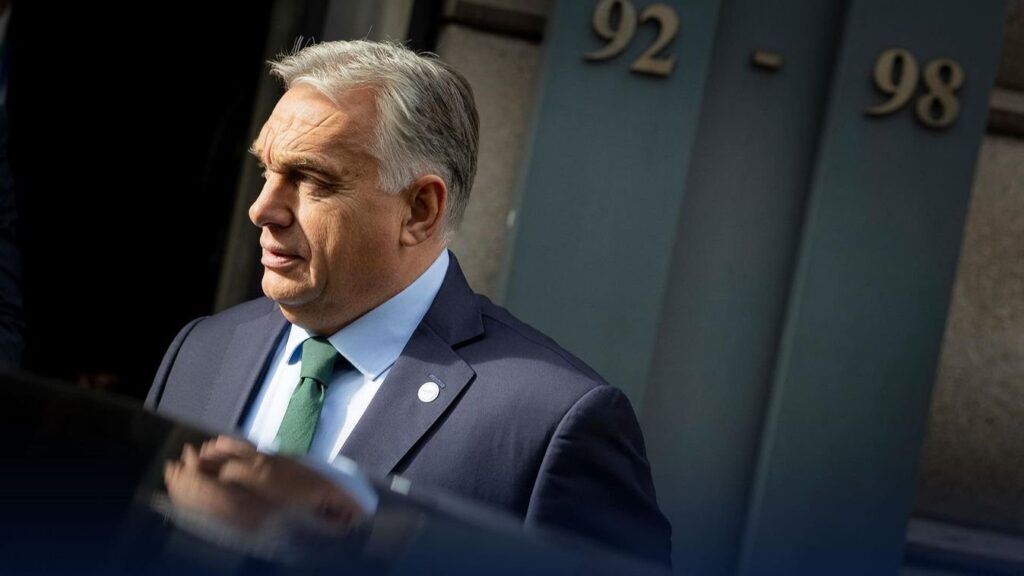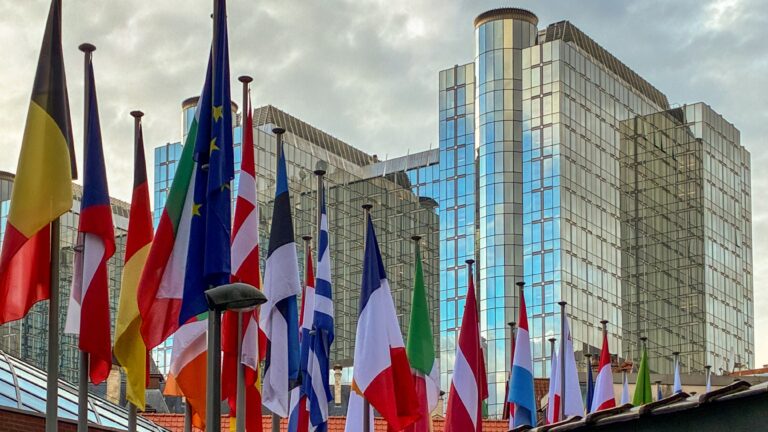The European Commission published its annual Rule of Law report on 8 July, and unsurprisingly, Hungary once again received the most recommendations among member states to improve the state of democracy in the country. As we wrote in our analysis of last year’s report, these assessments should be viewed as a political tool wielded by the Commission to pressure member states that defy its agenda.
Perfect Timing
However, this year, the timing of the report’s publication makes it even harder to take seriously. Just one day before the assessment came out, Commission President Ursula von der Leyen faced a motion of censure debate in the European Parliament, initiated by Romanian MEP Gheorghe Piperea, primarily over the so-called ‘Pfizergate’. According to what we know, von der Leyen exchanged several text messages with Pfizer CEO Albert Bourla ahead of the EU’s joint purchase of hundreds of millions of COVID-19 vaccines—many of which remain unused. The Commission refused to disclose those messages, a decision annulled by the General Court of the European Union for lacking credibility. Based on the details known so far, this could be one of the biggest corruption cases in EU history, involving the highest ranks of EU leadership. An important note: one of Brussels’ main accusations against Hungary in the Rule of Law report year after year is the allegedly high level of state corruption.
Monday’s debate would have been the perfect opportunity for von der Leyen to show how crucial accountability is, and how a true democratic stateswoman would act in such a situation. Instead, the exact opposite happened. Von der Leyen dismissed the motion of censure as a ‘far-right plot’ to remove her from power and undermine democratic institutions, labelling Pfizergate a conspiracy theory fabricated by ‘Putin apologists’. Important note number two: critics, especially within the European Union, frequently accuse Hungarian Prime Minister Viktor Orbán’s government of exploiting perceived external threats to cling to power, stoking fear among citizens, and demonizing political opponents. Yet what von der Leyen—and effectively the mainstream and progressive factions of the EP rallying behind her—did during the debate is precisely what Brussels regularly condemns the Hungarian government for.
Recommendations as Projections
Turning to the content of the report itself: according to the Commission, of the eight recommendations made last year, Hungary made progress in only one area—increasing salaries for judges, prosecutors, and judicial staff. On the other seven issues—including media freedom, civil society, and judicial independence—Brussels claims Hungary has not done enough.
A closer look at the Commission’s recommendations reveals glaring double standards. One recommendation reads: ‘Establish a robust track record of investigations, prosecutions and final judgments for high-level corruption cases.’ This comes from a Commission that is currently—in close cooperation with the majority of the EP—covering up a potentially enormous corruption scandal involving its own president. Not to mention the slew of other scandals in recent years, from Eva Kaili and Qatargate, to former Justice Commissioner Didier Reynders’ money laundering investigation, or European People’s Party leader Manfred Weber’s shady deals.
Another recommendation states: ‘Put forward comprehensive legislative reforms on lobbying and revolving doors, and further improve the system of asset declarations, providing for effective oversight and enforcement.’ Considering that many of the aforementioned scandals involve lobbyists as key drivers of corruption within the EU, this too could be seen as yet another projection by the Commission.
The Polish Scenario
The list could go on indefinitely, but the conclusion remains the same: one of the most corrupt leaderships in EU history is attempting to mask its own misconduct by attacking sovereign member states for precisely the same behaviours it engages in. If the Rule of Law report did not carry real consequences, one might simply shrug and say: let them carry on. However, as Euronews reports, Hungary’s alleged lack of progress means roughly €18 billion in EU funding remains inaccessible due to the so-called ‘deteriorating state of rule of law’. These funds, rightfully owed to Hungary, could finance critical development projects, such as modernizing infrastructure in the healthcare system.
It is less than a year until Hungary’s parliamentary elections. Brussels—just as it did in past elections—is clearly backing Hungarian opposition leader Péter Magyar and his Respect and Freedom (TISZA) party to topple Orbán’s government. Securing the release of EU funds is one of Magyar’s key campaign promises, just as it was for Donald Tusk in Poland in 2023. It is evident that the Commission is attempting to replay the same scenario in Hungary, with the Rule of Law report serving as one of its primary tools. It would hardly be surprising if—in the event of a Magyar victory—next year’s report suddenly proclaimed significant progress on rule of law issues and unblocked EU funds accordingly. We have seen this happen before, despite all the undemocratic and illegal actions of the Tusk government.
However, Poland’s example also serves as a cautionary tale. The country has landed back on the EU’s ‘bad guys’ list, with seven new recommendations directed at Tusk’s government—just months after right-wing candidate Karol Nawrocki defeated Tusk’s candidate in the presidential election. This illustrates how quickly Brussels can turn on even its most loyal allies when they are no longer useful.
Related articles:







